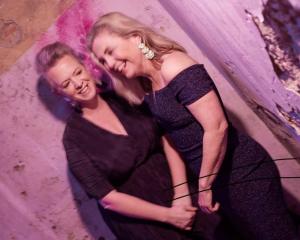
A resurgence in interest in chess has had the Otago Chess Club scrambling to find enough functioning chess clocks for its games.
Club president Geoff Aimers agreed it was a good problem to have.
For the uninitiated, chess clocks are used to ensure players do not take "forever and a day" to complete their moves.
Mr Aimers said there seemed to be two reasons for the increased interest — people wanting to find new pastimes as a result of lockdown, and the portrayal of chess in Netflix series The Queen’s Gambit (the title is the name of a chess opening).
The central character in the series, which is set in the 1950s and ’60s, is a young woman who wants to become the world’s greatest chess player.

Mr Aimers and the club’s director of junior play, Quentin Johnson, are both hopeful the renewed interest in the game will result in some new women members.
It has been some years since the club has attracted women players. Both acknowledged it could be daunting for women to attend a club which had only male participants.
Mr Johnson said the participation of women had not been helped by some "really stupid sexist attitudes" about women players from some world champions in the past century.
The game was particularly popular in the 1970s and ’80s in New Zealand, and in those pre-internet days the club would have had more than 70 members.
Mr Aimers said huge interest then had been sparked by the controversial World Chess Championship match between the United States’ Bobby Fischer and the Soviet Union’s Boris Spassky.
Numbers dropped off over the years and a couple of times the club had come close to folding, Mr Aimers said. Sometimes the membership had been as low as 15.
It was the only chess club in the country with its own building (7 Maitland St) as a result of generous patronage over the years, but if membership got too low, that affected its financial viability.
Now, it has 25 adult members and about 25 in its junior section, catering for 9-year-olds to 16-year-olds.
If numbers continue to increase, the club might have to organise extra playing times and may give consideration to starting earlier than its current time of 7.30pm.
Online chess has become popular in recent years, but Mr Johnson said while that was convenient for those who did not want to commit to attending a club at a regular time, it did not offer the opportunity for "postmortem". In the face-to-face setting players could dissect the game when it was fresh in their minds, discuss it and try to learn from what they had done.
"It’s the best way to learn."
People had to be prepared to lose a few games in the early stage of their playing and some players might find that quite hard, he said.
Learning to play chess was much like learning another language. You learned something in one game which you might or might not use in the next game, similar to the way in which you might learn words in a foreign language which you might not use immediately, but would be able to produce when the right situation arose.
A valuable lesson which chess taught people was that they had to be aware of what other people were thinking and doing, Mr Johnson said.
As someone who has been playing for decades, he had developed lifelong friendships with other players around the country.
The club, which says it is the oldest incorporated society in the country, is hopeful the fresh interest in the game will see it celebrate its 150th anniversary in 2025 in good heart.
The club meets on a Wednesday evening at 7.30pm, and there is social play on Tuesday afternoons from 1pm.
Those wanting more information about the club can check out the club website, otagochess.org.














